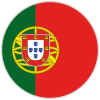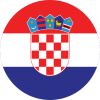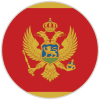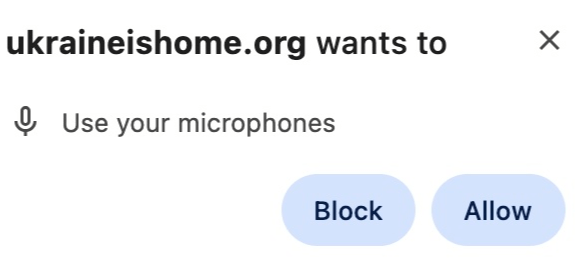For returnees from abroad
What do I need to know before returning to Ukraine?
Returning home is a personal decision that should be fully informed, voluntary and take place in conditions of safety and dignity. UNHCR continues to call on countries to allow civilians fleeing Ukraine to access to their territories, and to refrain from returning anyone against their wishes. Here you can find useful things to consider prior to potential return home, as well as get information about available assistance for returnees.
If you are looking for country-specific information regarding return, please check our FAQ by country.
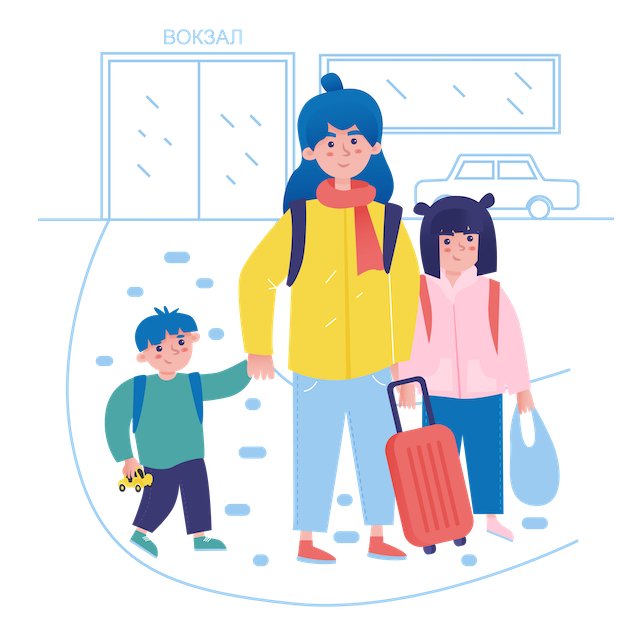
Checklist for administrative procedures before return
1. Documentation.
Make sure that you have a document that proves your legal stay in the European Union/host country and a valid travel document to return to Ukraine.
Temporary protection status
If you stayed in the EU for over 90 days within 180-day frame and applied for temporary protection status, you had a legal basis for staying in the EU and do not need to take additional steps to cross the border to Ukraine, as well as travel to the EU in the future.
However, if you overstayed 90 days in the EU and did not apply for temporary protection/asylum, please contact your local migration office to avoid difficulties while crossing the border.
Travel document – biometric passport/other
Documents that can be used to enter Ukraine:
- Biometric passport (passport for traveling abroad)
- Diplomatic or service passport
- Valid child’s travel document
- Crew member ID card/seaman ID card
- Certificate for return to Ukraine
If your biometric passport has expired, you can extend it at Ukrainian embassy/consulate in your host country. In some countries (Spain, Poland, Slovakia, Germany, Czech Republic, Italy, Türkiye) you can also visit State Enterprise “Document” – the list of cities abroad and in Ukraine is available here.
If you left Ukraine with an internal passport (book-shaped) or ID card, you still can return to Ukraine. To do so, obtain a certificate for return to Ukraine from Ukrainian embassy/consulate in your host country (the certificate is issued on the same day). It is also possible to return to Ukraine with an internal passport from Romania and Moldova (no return certificate needed).
Citizens of Ukraine cannot be denied entry to Ukraine under no circumstances.
Requirements to men of conscription age to receive consular services
Starting from 18 May 2024, men aged 18-60 are required to submit their individual military card along with other documents if they wish to receive consular services they selected (Source – Ministry of Foreign Affairs of Ukraine). Men of conscription age can update/obtain their military cards through an app Резерв+ available for Android and iOS.
It is not possible to receive a passport for traveling abroad without submitting an updated military card. However, for obtaining a certificate to return home an updated and valid individual military card (“військово-обліковий документ”) is not required.
Birth registration
Birth registration of a person and determination of their origin for citizens of Ukraine who live or temporarily stay abroad are carried out by diplomatic missions or consulates of Ukraine (see the list of consulates here).
The registration process takes place at the place of birth or at the place of residence of the child’s parents or one of them. In case of illness, death of the parents or for other reasons when it is impossible to register the birth, a written application can be submitted by relatives or other persons authorized by the representative of the health care institution in which the child was born or is currently. The application for registration must be submitted immediately, but no later than one month after the birth of the child and in the case of a stillborn child – no later than three days.
To register birth, you should provide:
- Original document from a medical institution about the birth of a child
- passports certifying the identity of the parents;
- A birth certificate application (written or oral) that contains information about the father
Birth registration is free and based on its results, parents are issued a birth certificate.
2. Pets
Please obtain necessary documents for your pets from the veterinarian in your host country.
During martial law in Ukraine the procedure of entry with pets is simplified. To enter Ukraine with your pet, make sure that your pet has:
- An identification document issued by the EU member state – pet passport or international veterinary certificate
- Vaccination against rabies and a rabies antibody test
- Microchip
Before traveling with your pet, please make sure that you know the carrier’s requirements for pet transportation. Depending on the size and type of the pet, you might need to have a muzzle, a leash and an appropriate pet carrier/cage. If you transit through different countries on your way to Ukraine, these countries might have additional requirements for entry with pets – please check the requirements before starting your trip.
For more information, please visit State Service of Ukraine on Food Safety and Consumer Protection.
3. Vehicle registration in Ukraine
If you bought your vehicle abroad and want to transport it to Ukraine, you will need to clear customs and register the vehicle upon arrival (if you plan to stay in Ukraine). You can calculate the costs of customs clearance here.
If you have owned a vehicle for over a year and have proof of registration abroad, you can bring the vehicle to Ukraine for personal use and be exempted from the standard customs clearance procedure. You will still need to register the vehicle and fill out the required forms. Please note that you will need to clear customs for the vehicle in case you decide to sell or gift it within two years of your stay in Ukraine.
If you came to the EU with a vehicle registered in Ukraine and the host country did not require a local registration, you do not need to take action.
If you changed your Ukrainian registration to local registration of the host country and want to use the vehicle in Ukraine, you will need to register it in Ukraine again. For more information, please contact Governmental Customs Service of Ukraine.
4. Tax obligations
Depending on your type of employment in the host country, it might be your obligation to pay taxes to the state and all the associated costs with running your business. Contact your local tax authorities or opt for a tax consultant if necessary to get information on closing your business/consultancy or other.
5. Bank account in your host country
It is generally advised that people returning to Ukraine permanently should close their bank account prior to returning to Ukraine to avoid paying fees for the account that is active but not used. Please refer to the terms of use of your bank account to decide whether to keep it.
6. Accommodation/healthcare/other subsidies in the host country
Leaving the host country for over 30 days will affect the social benefits that you receive from the host country. If you decide to return to Ukraine permanently and you used to receive assistance from the host country, make sure that you inform the local migration office or the entity that sponsored you about your decision.
7. Work records
Collect the documents that confirm your employment and work experience from your employer prior to returning to Ukraine. This will facilitate your employment in Ukraine. If there is a bilateral agreement between Ukraine and your host country, your work experience will be recognized in Ukraine and credited in full for pension calculation.
Ukraine has agreements with 23 countries in total: Hungary, Czech Republic, Romania, Latvia, Lithuania, Slovakia, Poland and others. Contact State employment center for more information on your specific case.
Even if there is no bilateral agreement between your host country and Ukraine, your work experience will be recognized to determine the age of retirement (60, 63, 65). You will need to prove your experience with work records from your host country. However, only social contributions paid in Ukraine will be considered to estimate the amount of pension.
8. School records
The Ministry of Education and Science advises collecting all the documents from the previous school where the child studied: subjects taken, results of exams and evaluation system etc. If there are no documents, the child can pass a pre-evaluation exam and still enroll in Ukrainian school. Please note that the child cannot be refused to enroll in Ukrainian school even with incomplete documents or missed subjects. Read more about school enrollment from the Ministry of Education and Science.
9. Health insurance
If you have paid health insurance, make sure to cancel it to avoid paying the fees while you are not in your host country. In some cases, the insurance will be terminated automatically after some time, in other cases you will be charged a full amount if you do not inform the insurance provider.
10. Medical records
Collect your medical records from your general practitioner so you can continue treatment in Ukraine. Once in Ukraine, you can select a family doctor and get the necessary treatment/prescriptions.
11. Travel to Ukraine
How can I travel to Ukraine?
Currently, Ukrainian airspace is closed so to return you will need to use other means of transportation such as bus, train or private vehicle. There are regular train connections from Ukraine’s neighboring countries, as well as bus connections from all EU countries. You might check Ukrainian Railways site for planning an international route and travel by train. Carefully plan your route and be prepared for a lengthy trip. Direct routes that are available at the moment:
Poland: Chelm-Kyiv, Chelm-Kharkiv, Chelm-Dnipro, Przemysl-Kyiv-Kharkiv, Przemysl-Kyiv-Odesa, Przemysl-Rava-Ruska, Dorohusk-Kharkiv, Dorohusk-Dnipro
Hungary: Budapest-Kyiv, Budapest-Mukachevo
Moldova: Chisinau-Kyiv
Slovakia: Kosice-Mukachevo
Czech Republic: Prague-Chop (the tickets are sold through Czech Railways site)
For indirect available route please also refer to Ukrainian Railways site.
Can I return to Ukraine free of charge?
We do not know of any transportation that is free of charge and is safe for returns. However, 4 countries provide general financial assistance for returns: Norway, Switzerland, the Netherlands, and Belgium. Please contact your local migration offices for more information. Additionally, the Netherlands provide support with travel arrangements, and Belgium sponsors bus trips to major Ukrainian cities and limited reintegration support after individual assessment.
12. Useful contacts in Ukraine
- Anonymous hotline regarding human trafficking countermeasures and consultations for migrants: 0 800 505 501 / 527 from 8:00–20:00 7 days per week. Visit 527 for more information.
- Prevention of domestic violence, child rights, human trafficking and gender discrimination: La Strada 0800500225
- Social, psychological, legal support for anyone, who has questions related to the war or needs assistance: Survivor Relief Centers
What types of assistance are available for returnees?
Cash assistance from the government for low-income families
On 26 January 2024 the government of Ukraine adopted a new resolution that expanded the possibility of funds allocation to low-income families so more families could benefit from cash assistance.
The resolution aims to support families that return and Internally Displaced People (IDP) who have not paid a single social contribution for 3 months before requesting assistance.
Who can receive cash assistance?
- Low-income families that returned from abroad and stayed there over 90 days, even if their able to work family members are unemployed and did not pay a Single Social Contribution (“ЄСВ”) during the 3-month period prior to the application
- IDP families that did not work or did not pay a Single Social Contribution (“ЄСВ”) in the 3-month period prior to the application
Conditions for receiving assistance:
- Cash assistance will be provided for 6 months
- Able-bodied family members should either register with the Employment Center or find work within 2 months after receiving cash assistance
You can enroll for social assistance:
- In person through executive offices of villages, settlements, and city councils
- By sending a registered mail with necessary documentation
- Online – through the Ministry of Social Policy site
More details about documents required for enrollment, who is considered a family member, and more is available on Diia.
What is the amount of state social assistance?
The amount of assistance is defined as the difference between the subsistence minimum for a family and the average monthly total income of a low-income family.
Calculator: Cash assistance from the government
Check if you are eligible for cash assistance, and what amount you are likely to receive, by filling in the calculator below.
Please note that the calculated amount displayed is an estimate for your information only. For confirmation on whether you are eligible and the amount of assistance you can receive, contact your local social service or TSNAP.
Cash assistance programme from UNHCR
UNCHR supports vulnerable people that were displaced by the war in Ukraine with multi-purpose cash assistance. You can enroll for cash assistance in Multi-Service Protection Centres where UNCHR offers this and other services. Additionally, mobile groups regularly visit remote areas to enroll people who cannot reach the Multi-Service Protection Centres.
The assistance is targeting returnees, internally displaced people, and persons affected by the war.
To check if you meet the criteria and how much you can receive, please use the calculator.
Calculator: Cash Assistance from UNHCR for returnees
*Proof of deregistration from temporary protection or social services in refugee host countries is required to be eligible for assistance
You can apply for cash assistance if you/your family:
- has not previously received assistance from international organisations
- has an income of less than 5,400 UAH per person
AND belongs to the following categories and has at least one of the Vulnerability Criteria (the list is below).
Returnees from abroad
People who have RETURNED to their places of permanent residence after being forced to move to another country due to the war as of 24 February 2022 and have vulnerabilities from the list below.
❗Important: to be eligible for assistance, Returnees from abroad should have a proof of deregistration from temporary protection or social services in refugee host countries.
Internally displaced people
IDPs who have been displaced after 24.02.22 and have vulnerabilities from Vulnerability Criteria.
People affected by war
Persons who have NOT been displaced after 24.02.2022 but have been affected by the war in the following regions: Dnipro, Poltava, Odesa, Zaporizhzhia, Kirovohrad, Cherkasy, Kharkiv, Chernihiv, Sumy, Mykolaiv, Kherson; and have vulnerabilities from Vulnerability Criteria list.
Vulnerability criteria
- families with only one parent (either a father or a mother) with one or more children under the age of 18 or with older persons (55 years and older);
- families headed by one single/several single older persons (55 years and older) or an older person with one or more children under the age of 18;
- families with one or more persons with special needs. Namely, those with disabilities and chronic diseases. The List is not limited to these criteria of special needs;
- foster families who care for unaccompanied children and children separated from their parents (documentary evidence is required).
Common questions about UNHCR cash assistance programme
Assistance is provided by UNHCR to a household. What is a household?
The household is composed of:
- Head of the household (and their grandfather/grandmother, if they are dependents)
- Wife/husband
- Her/his children (up to 23 years old)
- Her/his parents
*Persons who are not listed must register as a separate household even if they live together.
*One person is also considered a household if they meet vulnerability criteria
Important: the enrollment for cash assistance programme cannot be done online. You should either call the UNHCR hotline or visit one of the Multi-Service Protection centres/mobile groups to get a final decision about your eligibility for cash assistance.
Where can I enroll for cash assistance?
You can enroll for cash assistance in UNHCR Multi-Service Protection Centres and through mobile groups. Please note that you cannot enroll for cash assistance in TSNAPS – however, you can receive other services there such as legal aid, restoration of lost documents, enrollment for social assistance and more.
For how long will I be receiving cash assistance?
Cash assistance is provided for three months. Please note that assistance can be received only once from only one humanitarian organization or UN Agency. The agencies coordinate their efforts to make sure that the individual does not receive assistance multiple times or from different partners.
Which documents do I need for enrollment?
- tax ID number
- national passport or other ID documents
- IDP certificate (if available)
- bank card of the head of the household. The bank account must be in local currency (UAH)
- birth certificates of your children
- legal guardianship or other official custody document that clarify the relationship with the children (when applicable)
- medical report in case of disability or disease that affects your access to services (when applicable)
There is no Multi-Service Protection Centre and mobile groups in my area, can I enroll in a different area?
If you meet the criteria for cash assistance, you can enroll in the closest protection centre or mobile group.





